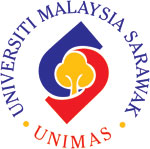| Exam Body | Internal Degree, Malaysia |
|---|---|
| Course Duration | 6 Sem |
| Part Time/Full Time | Full Time |
| Fees | 660/sem |
| Fees (International Student) | 3793.60/Sem |
| Faculty | Faculty of Cognitive Science and Human Development |
| Conducted entirely in Malaysia | Yes |
| Awarding Country | Malaysia |
| Level of Study | Bachelor's Degree Level |
| Field of Study | Science (Life Science/Physical Science/Applied Science) |
| Stream Requirements | Arts/Science Stream |
| Additional Notes | UPU Code (for reference): PA05 |
| Course Description | Understanding the human mind has intrigued mankind for centuries. This search has led to the inception of the field of Cognitive Science after World War II. Cognitive Science, being the field in the forefront of brain and mind research, holds great promises in revolutionizing the understanding of ourselves as well in bringing forth technological advancements we could only imagine today. It draws from disciplines such as Psychology, Neuroscience, Linguistics, Artificial Intelligence and Philosophy with the central purpose of investigating the nature of mind and intelligence. UNIMAS or specifically Faculty of Cognitive Science and Human Development is the pioneer in spearheading the establishment of Cognitive Science in this region. We are also broadening our concentration to psychology, in line with the growing demands for psychologists in the country. Ours is unique because it focuses on the cognitive aspects of psychology tailored to the needs of professionals from a wide-ranging field, e.g. ergonomics and human factor, learning sciences, medical and the industries at large. To date, 220 students had graduated from the Faculty of Cogntive Science, UNIMAS. |
| Entry Requirements | The minimum requirements for entry into most undergraduate programmes are as follows: Good pass in the Sijil Peperiksaan Malaysia (SPM) with a credits in Bahasa Melayu/Bahasa Malaysia subject or a credits in Bahasa Melayu/Bahasa Malaysia July Paper and a pass in Sejarah subject (for SPM 2013 and above) in Sijil Pelajaran Malaysia (SPM)
AND
A good pass in the Sijil Tinggi Peperiksaan Malaysia (STPM) with a minimum of:
OR A good pass in Sijil Matrikulasi KPM/Asasi Sains UM/ Asasi UiTM with a minimum
OR A recognised Diploma in relevant fields
AND
Malaysian University English Test (MUET)
Good pass in the Sijil Peperiksaan Malaysia (SPM) with a credits in Bahasa Melayu/Bahasa Malaysia subject or a credits in Bahasa Melayu/Bahasa Malaysia July Paper and a pass in Sejarah subject (for SPM 2013 and above) in Sijil Pelajaran Malaysia (SPM)
Notes:
|
| Career Prospects | Knowledge in Cognitive Science could be important in a wide range of careers in contemporary society; such as information and communication technologies (ICT), training and education, business, design, research, as well as the enhancement and designing of new technologies to assist in the improvement of human work performance in different working environments. Graduates from the program could work as software designer and developer; software, systems or web interface designer; systems support professionals; systems analyst; human factors personnel; consumer product designer; industrial psychologist; consumer psychologist; academician/educator/ tutor; and instructional designer, amongst others. |
All fees are in RM (Ringgit Malaysia) currency unless stated otherwise.
Other Courses in this Level of Study Other Courses in this Field of Study

























